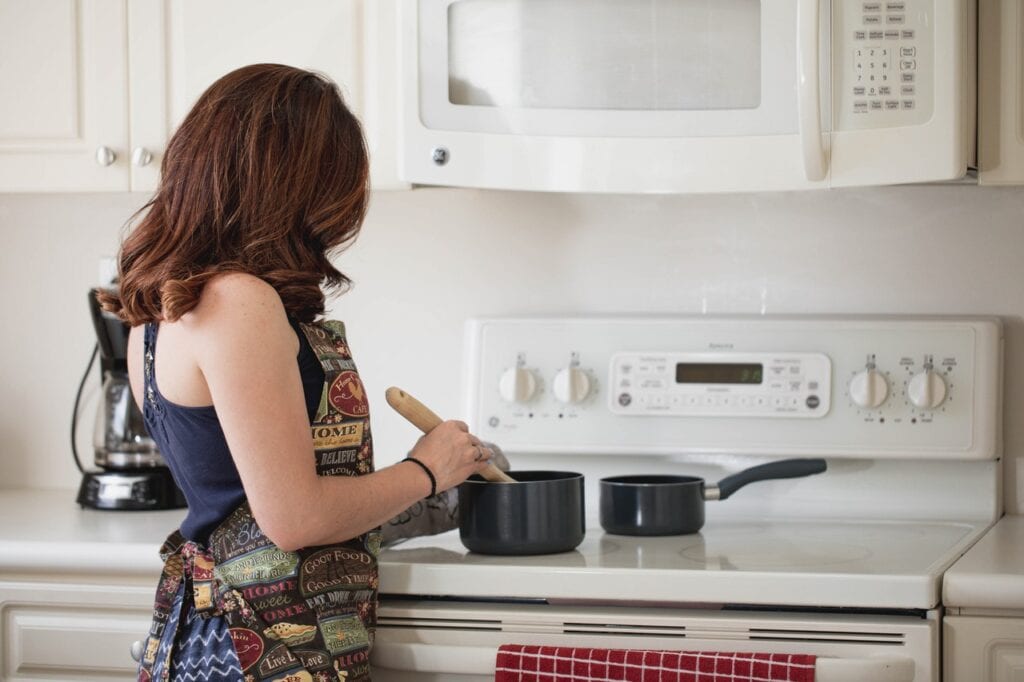Ways to Get Your Mental Health Back on Track

After the year we’ve had, not many would blame us for being a little pessimistic and in a not-so-great headspace.
But a more normal world seems to be on the horizon, and we don’t want to be stuck staying home in our pjs and binge watching Friends for the fifth time when everyone else gets on with their lives.
Now the question is: how exactly do we get back to a place of a healthy mindset? We may be dealing with heightened anxiety from getting sick, grief from a loved one passing during the pandemic, or trauma from seeing the hoards of sick patients. How do you even begin to tackle these issues?
Below, we’ll offer some tips and practices you can do to begin to shift yourself back to a healthier place.
Find Your Self-Care Routine
So many people talk about self-care, but few actually do anything about it. How often do we hear someone say, “Oh, I wish I could afford to take some time for myself!” (It seems to be an especially popular saying among parents.)
Well, unfortunately, you need to make time to take care of yourself. There are countless health disadvantages for people who don’t prioritize their well-being, from high blood pressure, to heart palpitations, to headaches. When we make it a point to put our mental health at the top of our priority list, our body and mind will thank us.
So how do you find the best self-care practice for you? Well, that kind of depends on the person. What do you enjoy? For some, taking a relaxing bath with bath salts and calming music is a small slice of paradise. For someone else, they could hate the idea of sitting still for half an hour, especially in dirty bathwater.
Exercise

If you’re an active person, try to carve out time to do a daily workout. Go for a run and immerse yourself in nature. (Any Vitamin D you get from the sunshine is also a mood booster.) Or, if you’re looking for something that is more in the relaxing area, try yoga or pilates. Now you’re getting the added benefit of mindfulness along with getting your body moving.
Using Your Hands
Maybe working out isn’t your thing. Maybe you enjoy arts and crafts, and the slow, methodical strokes of a paintbrush are what calm you. Wonderful! Take a few minutes to paint a day. Or try something else that uses your hands – maybe needlepoint or knitting or even an adult coloring book. Find something that gives you joy to do, and can be easy enough that you’ll actually work it into your routine. Then you can start incorporating other self-help practices that may be a bit more time consuming, like sculpting pottery.
Cooking

Maybe you’re a foodie, and you love the process of making a delicious meal. While some meals take longer to prepare than others, see if you can hit two birds with one stone with your cooking. Can your spouse or kids help out? Then you can also use this time as quality time connecting. Or maybe you have a favorite podcast that you can’t seem to find time to listen to. Pop it on while you’re sizzling some steak.
Writing
Have you ever journaled? If not, do you know a friend who does? Journaling can be a very effective tool to help work through some of our internal issues.
For example, you can write down a negative thought that you’re having. Then, after you’ve read it and acknowledged it, you can rip out that page and throw it away. While this may seem like merely a symbolic gesture, don’t discount it too much. Our mind and body are more connected than we often give them credit for, and physically throwing out this thought can go a long way in helping us release that recurring thought from our mind.
Seek Professional Help

Over the past year, many therapists have shifted to offering online sessions, so you can safely discuss your mental health issues from the comfort of your own home.
However, for those who live in small apartments with others or are worried about family members overhearing their personal matters, this isn’t an ideal option. However, it looks like seeing therapists in person again are becoming more and more of a safe option.
The level of care you want to seek will depend again on your personal situation. If you’re dealing with loss and grief, a weekly therapist could be a great support for you. However, if you’ve developed some dangerous addictive behaviors while trying to cope with the chaos of the last year, you may want to look into more intensive options.
There are treatment centers where you can explore your deeper reasons behind your behavior, as well as learn specific tools and self-regulation strategies to reset your fight-or-flight response. You can try to find holistic non-12 step programs, like The Exclusive Hawaii, that help you learn these self-regulation tools through experiential means and innovative modalities.
Incorporate Mindfulness Throughout Your Day
It’s easy to be mindful when you’re doing yoga or meditating. But how do you stretch it out to incorporate mindful practices throughout your whole day?
Watch Your Breath
When we get worked up, our breath becomes shallow and short. This often happens without us even noticing. However, if you strive to notice when your breath becomes restricted, you can hone in on it when it does.
So next time you’re going into crisis mode because you realize the document you’ve been working on for the last hour didn’t save, take a moment to watch your breath, and slow it down. Slowly inhale and exhale. You’ll soon notice how that anxious feeling that was taking over your body begins to lessen.
Now, your head is in a clearer place to reassess the importance of your mistake. “Does this suck that I wasted an hour? Yes. But can I afford to spend the time to work on it again so it’s right? Yes.”
Take Natural Delays as a Gift

No one likes to be put on hold on the phone or stranded in a traffic jam so long you can’t see the front.
However, when we shift to a mindful perspective, we can use these little moments of pause as a time to reflect.
So when you’re put on hold on the phone, take that time to come back to your breath and slow it down.
If you’re stuck in a traffic jam, relax your muscles and do some neck rolls. Turn on your favorite music and enjoy the break.
When it comes to self-care, the more conscious you are of your efforts, the more you’ll improve the state of your mental health.




